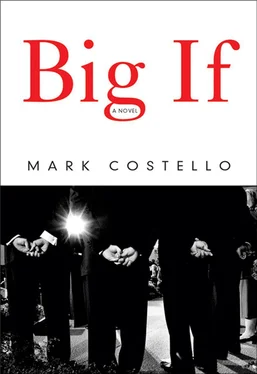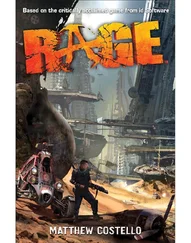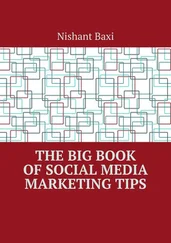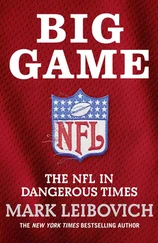Some robbers worked in gangs and started moving west en masse, down the road and closer to the climax on the sea where the players were better, stronger, more experienced, but also richer, having been in the game long enough to get that far. Hunting Arizona into California took real skill, and many brigands died, straying too far west. The monsters got stronger too, and faster and hungrier, and the roads and stalls and squatters’ camps, so thick around Albuquerque, disappeared coming into awesome ruined silent Phoenix, and after Phoenix there were no more helper bots. Out there, it was pretty empty. Few saw those western screens. You could travel for a day and not meet another soul. You could spend a month in real time, six hours every day, amassing strength, killing monsters, killing robbers, clicking west one footstep at a time, and, braving many dangers, earn — really earn —those pixel-vistas, and know, as you stared down from Mount Wilson into the basin of old L.A., that you had come farther than almost any player ever. You could do all of this, and know that you were perhaps another day’s hard clicking from the gigabyte Pacific, which maybe seven pairs of eyes had ever seen, and, as you stood there and you gazed, you could be jumped by Farty Pup and lose it all.
Jens had written death. Death was zero-out, loss of name and scores and property and back to Albuquerque. To novice players — sixty seconds from the crater and you’re dead — death was like losing any other game, but seasoned players had been known to grieve their own deaths, all that effort flushed, and grieve the loss of trusted friends along the way. Friends made pacts with each other: if you die, I’ll kill myself; we’ll meet in Albuquerque and start west again together. Jens remembered a strong player, one of the strongest humans in the game, standing alone in the cracked hardpan outside of Barstow, California, the avatar at rest. Jens went upstairs to write some code, came back at lunch, and saw the player in the desert still, logged on, but doing nothing. It took three days for the avatar to starve itself to death, so that the human could rejoin some beloved friend at the smoking crater; there was no other algorithmic way to kill yourself. The avatar collapsed, the sacrifice complete. Watching these stark moments in the server ring, Jens realized that the game, the mass of logic he had written, was growing beyond logic, beyond sense, and he began to wonder if maybe Walter had been right after all.
Money made in different ways — stripping corpses, robbery — was spent on weapons. Under Naubek’s weapon-market algorithms, pistols were cheap, shotguns more expensive, while a laser-sighted assault rifle with spare banana clip cost about as much as ten years’ worth of food. Players engaged in rampant brigandage to get money to buy weapons to become more fearsome brigands to get money to buy better weapons, and hire a mercenary or two, or three, or ten, or better yet a small army of mercenaries, similarly outfitted and invincible. The strongest players dreamed of becoming a warlord with a retinue. The warlords could do anything, anywhere, any when , subject only to the toxic storms, the hunger-thirst-exposure alg, or the danger of betrayal by your bodyguards. This danger could be cut to zero by hiring gamebot bodyguards, but the bots were considered inferior henchmen because they were, under the Asplund-Naubek template, incapable of thrill killing and did not, therefore, inspire true visceral terror in the squatter camps. Warlords plundered squatter camps, slaying hundreds of subscribers, until there were very few unplundered places left. After that, warlords plundered warlords. It was stated as fact in the BigIf chat rooms that sixteen known human players had achieved superwarlord status, traveling the space, pillaging enough gamedollars to pay off their followers. Soon, normal human players, sick of dying or living in fear, desubscribed and monthly revenues downspiked.
The VCs panicked and the IPO was canceled. The bosses ordered patches in the shell to stop the war. Many patches were discussed. One would have stopped any player from hiring more than ten mercs at a time. There were numerous conceptual problems with this. Because humans were the preferred brigands, the superwarlords who hired them were interacting with other players, not with any part of the software. They could install a twenty slays-a-day cap, but this would permit a midsized army to kill several thousand humans a day. A super could run a decent-sized genocide that way. They met and talked, managers and engineers, sipping seltzer water in conference rooms, charting counter-warlord strategies on smeary whiteboards. Why not declare a safe haven around the squatter camps? Or send the holybots through the desert spreading some kind of peace message? Or eliminate automatic weapons? Or cut the slay-per-day cap to nine or six or four? Or write a filter to deduct frequent-flier miles for each massacre? Jens was frightened at these meetings. He had come to see his great creation as he imagined Walter saw it — malignant, runaway — as a compromise one makes for money, and now they were saying that the game might die of desubscription, leaving Jens with nothing for his compromise.
The crisis peaked and passed. Superwarlords got bigger on more killing. A few became megasuperwarlords, but one after another, each of them was swallowed up by his or her own retinue, which had grown too big to pay, feed, or lead. The mercenaries, going unpaid, mutinied, killed the megas, and fought over spoils. The mutineers split into factions, slaughtering each other. Survivors were absorbed into a rival army, swelling it beyond the point of supportability and carrying the idea of mutiny like a germ, and the armies started to dry up, like a flood receding. Slowly normal players returned to the shops and roads and everything was back to where it started.
Jens looked at his watch. It was nine-fifteen, time to go upstairs. Jens heard chewing and quiet, polite spitting in the balcony. He saw Prem Srinivassan, the dapper Indian who wrote helper bots. Prem sat a few rows back, eating little purple seeds from a sandwich bag.
“See the cars?” he asked.
“What cars?”
“Out front,” said Prem. “Five Lincolns at the curb, the drivers in dark suits gabbing in a circle, reading Boston tabloids to each other.”
“Bankers?”
Prem ate a seed. “First three cars look bankerly to me. They usually have black cars with plain hubcaps, very understated, and at least one cellular antenna. Next one, the gray one? I’ll bet that’s underwriter’s counsel. Lawyers do the gray or blue radio cars with wire rims. The last one, the true limo, is Howard Powers.”
Howard ran the modem farm. He answered to Digby and had about twenty underlings.
Jens said, “Why did Howard rent a limo?”
“Last night was his high school’s winter dance,” Prem said. “His date is crashed out in the backseat. You can see right up her gown, at least you could when I came in. She may have changed position since then.”
Employees checked the curbs every morning, posting sightings and interpretations to the office intranet. No cars meant that the IPO had been put off yet again. Two cars meant exploratory talks, banker-to-banker, and a sign of life. Three cars was ambiguous, but more than three cars, not counting the prom limo, meant that the bankers had brought lawyers, which even Howard’s little sister Pru knew meant that they were getting close to going public.
Vaughn Naubek, Jens’ fellow founding coder, passed through the balcony on his way to the employee locker room.
Prem said, “Naubek, sunny greetings. Want a seed?”
Naubek said, “No thanks, I don’t like Indian food.” He continued to the lockers.
Jens and Prem watched a few players die, then took the stairwell to the ground floor.
Читать дальше












